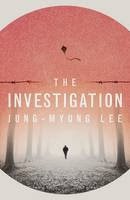This sensitivity is mirrored in the novel itself, despite the harsh and horrific setting of Fukuoka Prison throughout the mid 1940's. The story focuses on the investigation carried out by prison guard Watanabe Yuichi into the nightmarish murder of a fellow guard Sugiyama Dozan. At the outset Watanabe knows little about his murdered colleague, having only been transferred to the camp a short while before the incident. What he does know is that Sugiyama was a feared man inside the camp.
'He didn't need to yell; he knew how to strike fear in someone with his soft voice.'
Everything points to Sugiyama being a monster, even his appearance is scarred and terrible; he carries himself with an arrogance which comes of his war hero status. There are rumours about his ruthless actions on the battlefield, and he is known to be equally as ruthless when it comes to his pursuit of duty at the prison.
'He was vicious and crafty. The prisoners feared him and the guards avoided him.'
One of Sugiyama's principle duties is that of censor. As a man who has only recently gained literacy, it is believed that he is best placed to recognise the intentions behind the phrases chosen by the prisoners forced to use a second language (Japanese) in all correspondence. The theory is that it is his vigilance in this role coupled with his brutal and feared reputation that is the motive behind his murder.
Watanabe quickly finds that all the evidence does seem to point towards one particular Korean prisoner, a man who seems to have been especially victimised by Sagiyama, and one who appears to be keen to confess to the crime. With the crime solved, and his superiors content Watanabe is promoted and given the responsibilities left by Sagiyama's death. As censor he is able to avoid much of the violence and brutality of the prison camp; and as an educated man he finds himself drawn to the collections of confiscated writings that now fall under his care. His new duties, however provide him with unsettling new glimpses into the true nature of Sagiyama's character and motivations, as well as giving him access to one prisoner, Hiranuma Tochu (or Yun Dong-ju to give him his correct Korean name) who he finds increasingly fascinating.
As Watanabe draws closer to Yun he starts to see the beautiful spirit that has been left unbroken by years in captivity. Yun continues to have hope that all he need do is survive, that freedom will come and bring it's own release.
'We all have to survive so that we can see the end of this war. Remember, surviving is winning. A corpse cannot cheer.'
Yun is aware that war, deprivation and suffering change human souls, but he has faith that if hope can be kept alive through the love of stories, and the beauty of the arts then the soul is capable of recovery.
'If these times make us evil, fine, let's become evil. But let's keep a human heart.'
It becomes clear to Watanabe that the relationship between Sagiyama and Yun went far beyond that of prisoner and guard. In his investigation into how this unlikely connection was formed and maintained he discovers secrets and conspiracy that threaten his faith in the cause of Empire, and create deep and terrible feelings of guilt about his own inaction in a time of crisis. Eventually he resolves that the least he can do is survive, just as Yun would have wanted, in order to provide testimony of the truth, and the existence of a great soul like that contained within Yun Dong-ju.
The novel is deeply moving; the power of art to provide hope, give comfort and increase strength in troubling times is the central compelling message. One that will hit a mark in the hearts of everyone who reads this exceptional piece of literature. I have seen this book compared to The Shadow of The Wind, but in my opinion it is even more powerful. In it's own way it is another in the significant influx of novels that have reading/books/bookshops/libraries etc at their heart. It was recently suggested to me, when discussing this influx, that nowadays the only people who actually buy and read books are the die-hard bookworms among us, so placing this inherent love at the heart of as many novels as possible was a natural move. This may well be the case, although I hope that there are more of us out there reading. I would prefer to think of us as the vanguard leading more reluctant readers towards the gems of writing that exist. In anycase this novel will certainly appeal to those of us who can see the redemptive power of the arts.
I'm going to conclude this post with a translation of one of Ynu Dong-ju's poems which I think is quite beautiful, enjoy.....
Prologue
Until the day I die
I long to have no speck of shame
when I gaze up toward heaven,
so I have tormented myself,
even when the wind stirs the leaves.
With a heart that sings the stars,
I will love all dying things.
And I will walk the way
that has been given to me.
I long to have no speck of shame
when I gaze up toward heaven,
so I have tormented myself,
even when the wind stirs the leaves.
With a heart that sings the stars,
I will love all dying things.
And I will walk the way
that has been given to me.
Tonight, again, the wind brushes the stars.

No comments:
Post a Comment